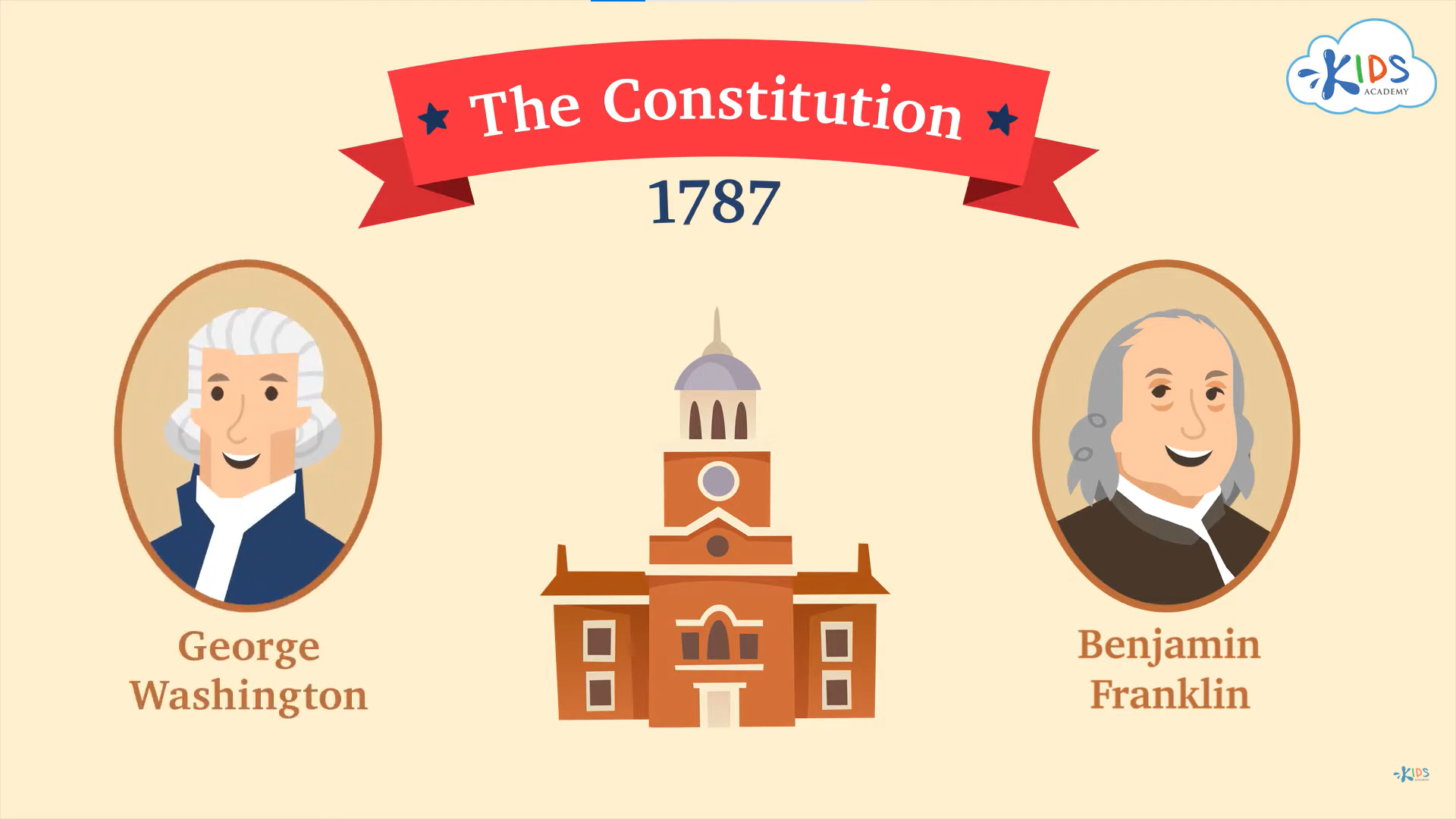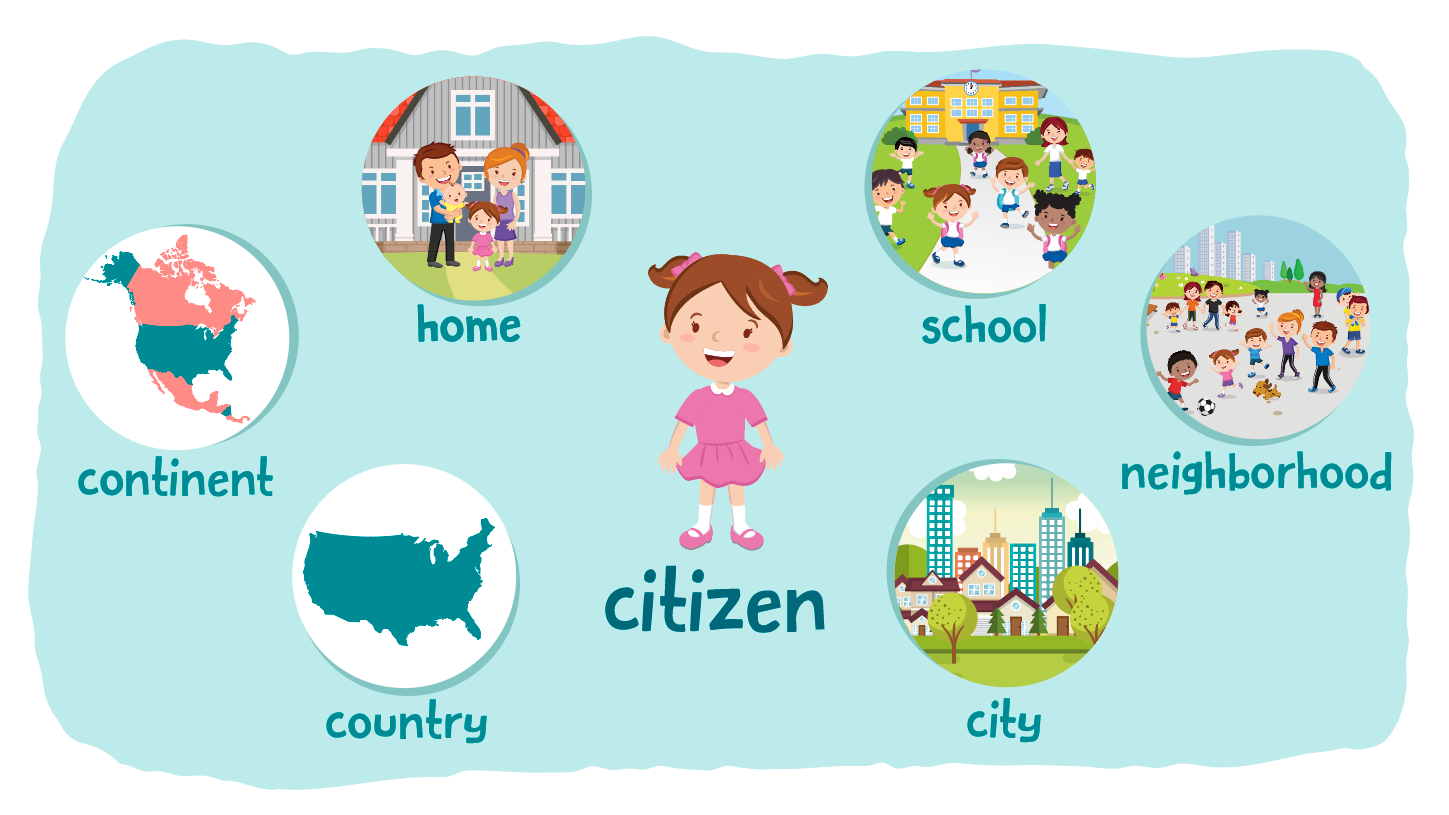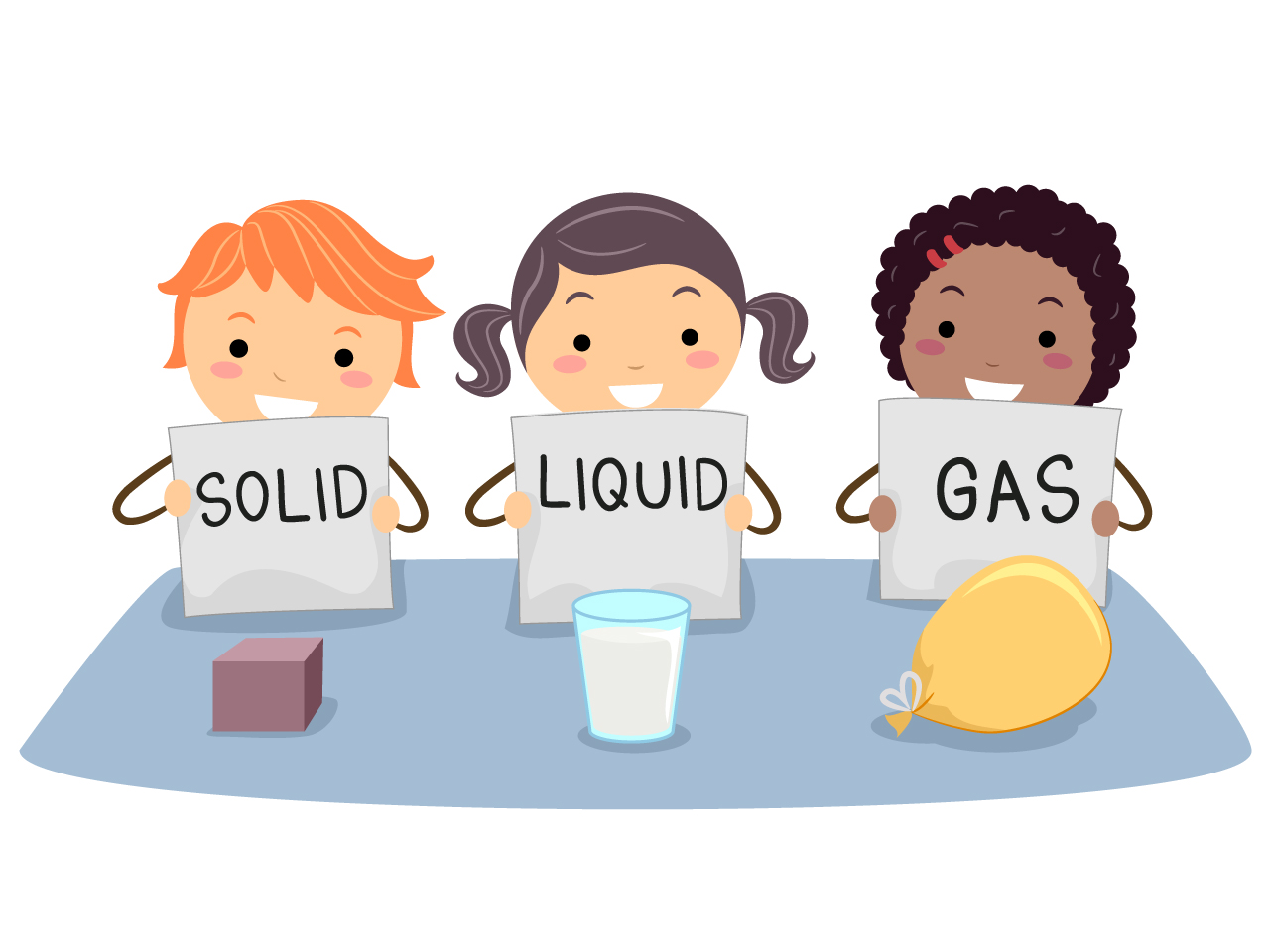Understanding prefixes Worksheets for Ages 7-8
8 filtered results
-
From - To
Explore our "Understanding Prefixes Worksheets" designed specifically for children aged 7-8! These engaging worksheets introduce young learners to the concept of prefixes, demonstrating how they alter the meaning of base words. With a variety of fun exercises, kids will differentiate between words with and without prefixes, enhance their vocabulary, and develop their reading skills. Our resources foster independent learning and critical thinking, making them perfect for classroom use or at-home practice. Boost your child's confidence in language arts as they enjoy learning the power of prefixes in simple, interactive ways. Download your worksheets today and watch your child's skills soar!
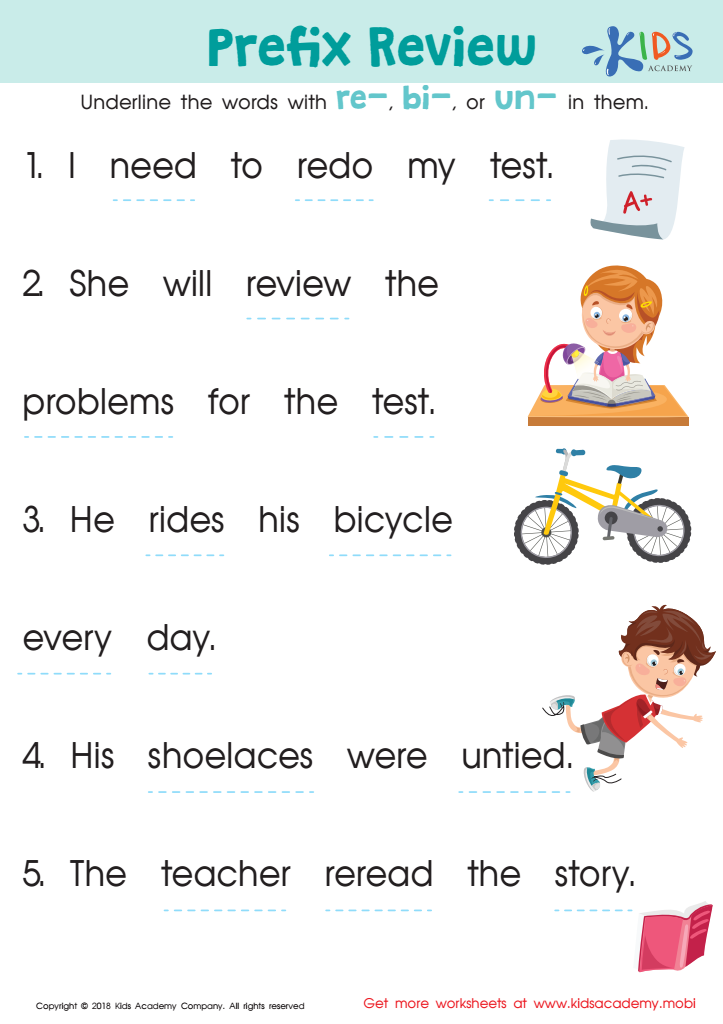

Prefix Review Worksheet
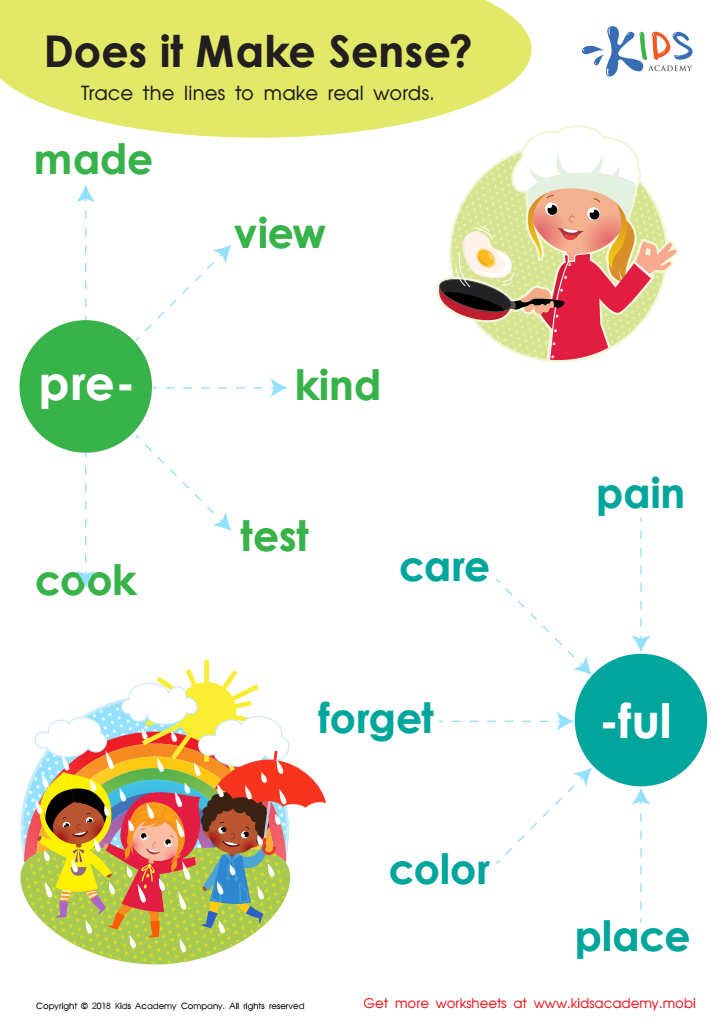

Prefix pre– and Suffix ful– Worksheet
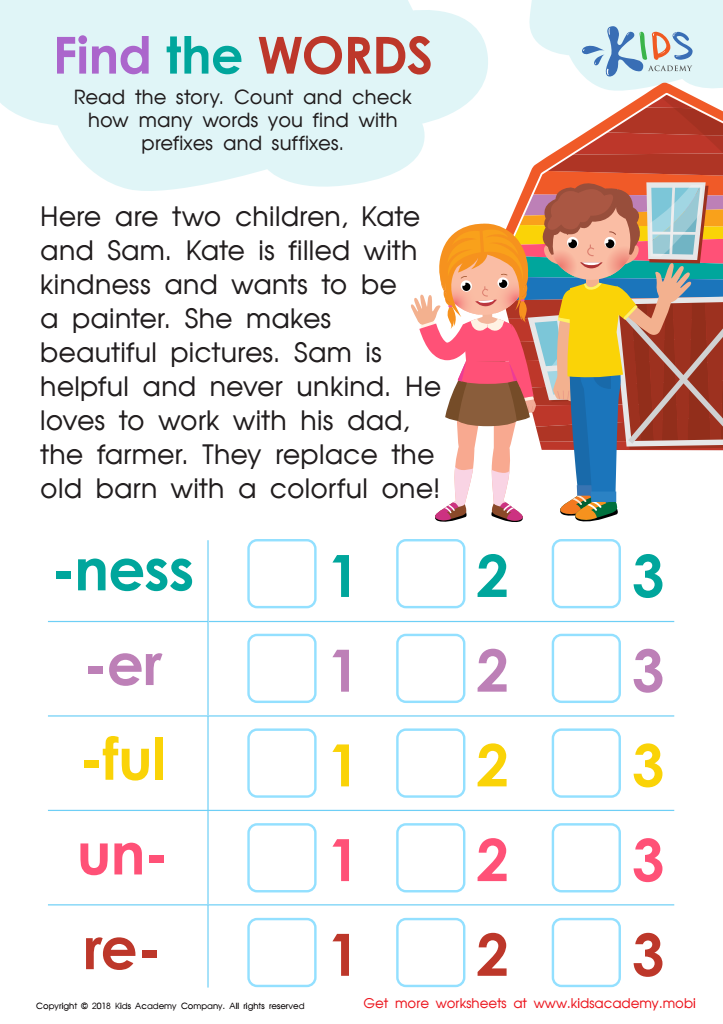

Prefix and Suffix Worksheet For Grade 3
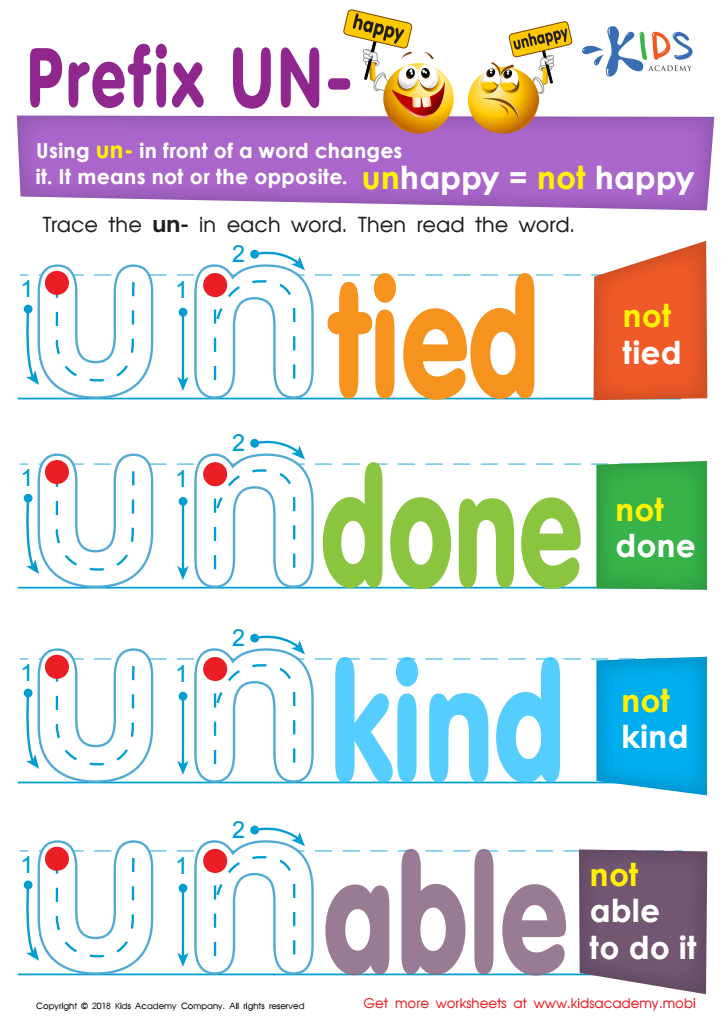

Prefix Un- Worksheet
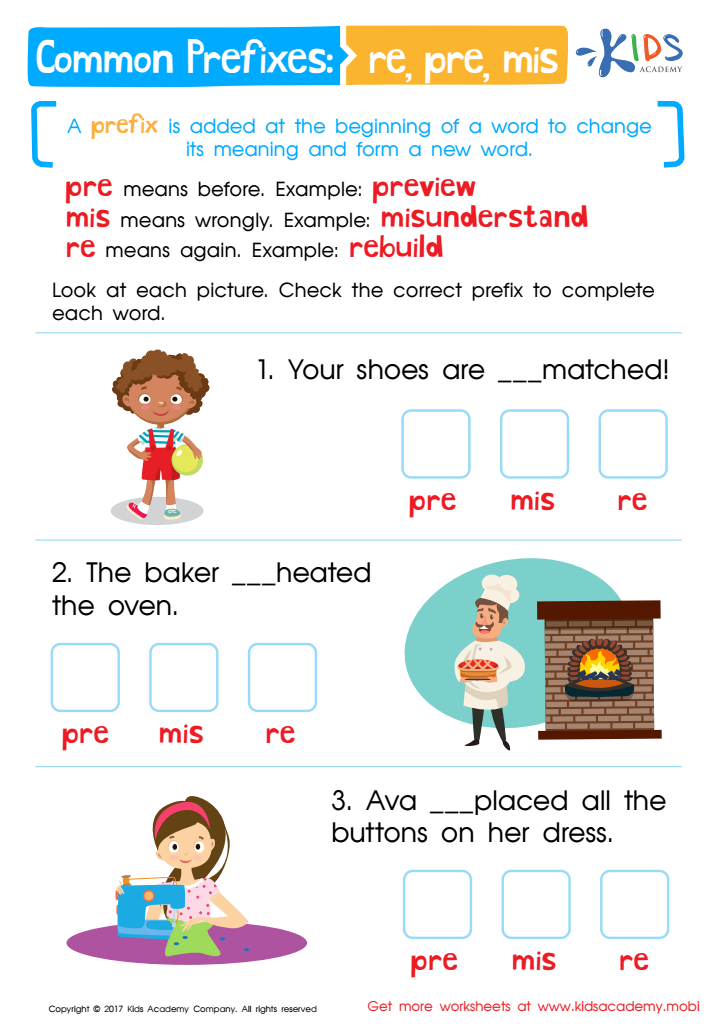

Common Prefixes Worksheet: RE, PRE, MIS
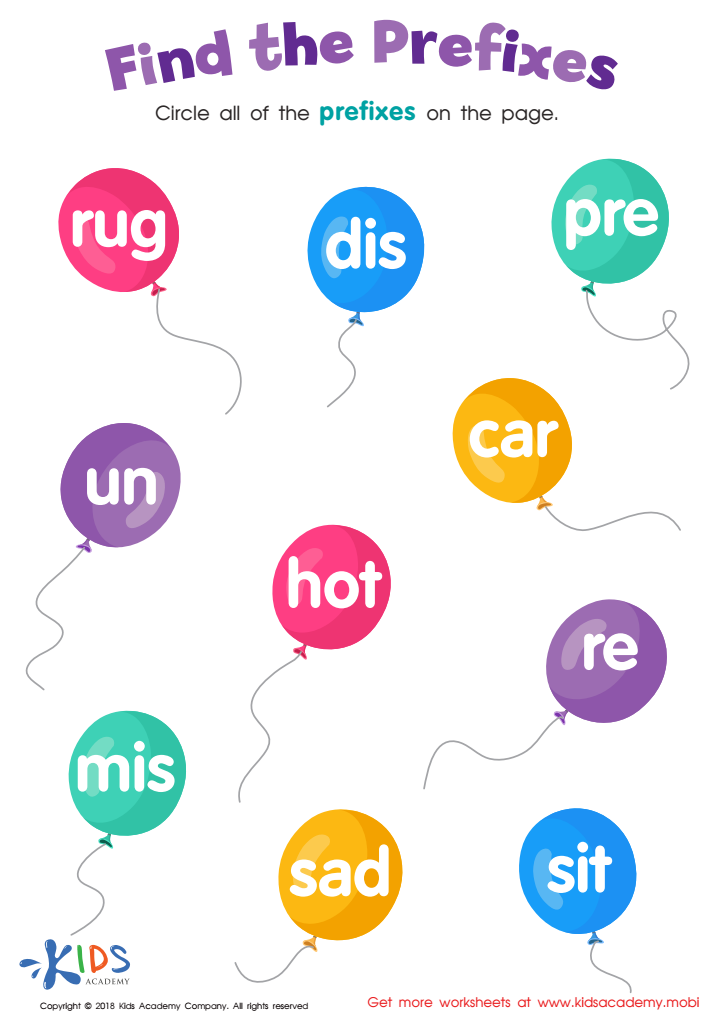

Reading: Find the Prefixes Worksheet
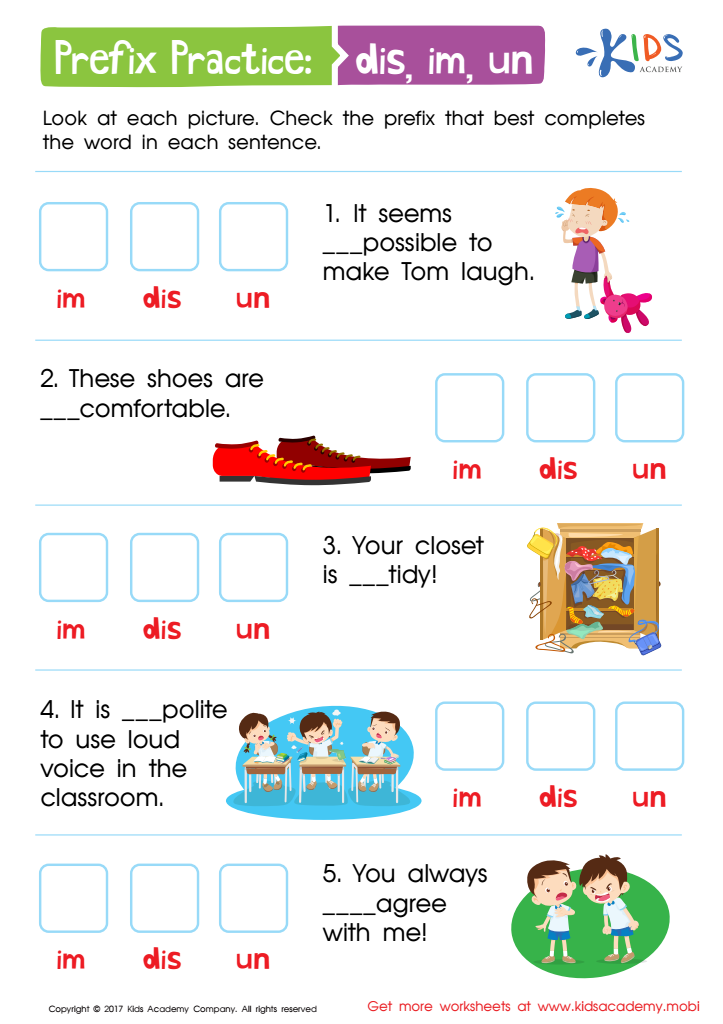

Prefix Practice Worksheet: DIS, IM, UM
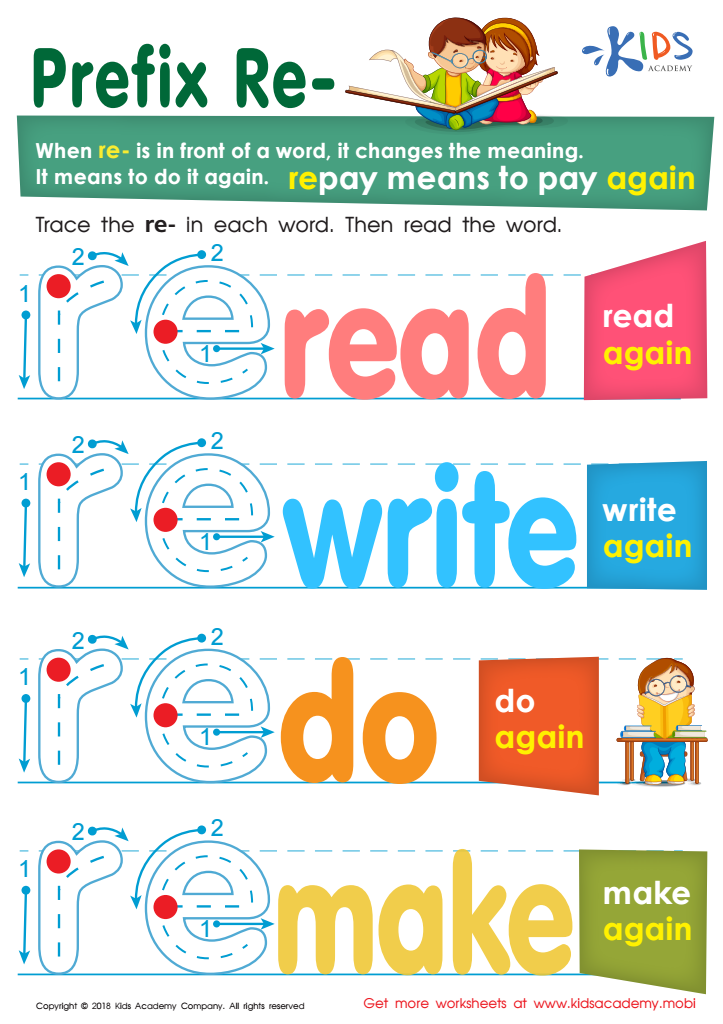

Prefix Re- Worksheet
Understanding prefixes is crucial for children aged 7-8 as it significantly enhances their reading and vocabulary skills. As children at this age begin to encounter more complex texts, knowledge of prefixes empowers them to decode new words. For instance, recognizing "un-" means "not" can help children understand words like "unhappy" without needing prior exposure. This leads to increased confidence in their reading abilities and fosters a love for books.
Moreover, comprehending prefixes promotes effective communication. Children can formulate words accurately, improving their writing and speaking skills. It also encourages critical thinking, as they learn to analyze words and infer meanings. This ability can enhance their performance in school, particularly in subjects requiring reading comprehension and language use.
From a parental and educational standpoint, focusing on prefixes cultivates a positive learning environment. It engages children in playful language activities, making learning enjoyable. When parents and teachers emphasize prefixes, they connect vocabulary to real-life contexts, making lessons applicable and relevant. Ultimately, by caring about prefixes, adults contribute to a foundational skill that aids children's academic growth and instills a lifelong appreciation for language and learning. Supporting this knowledge builds the pathway for their future literacy success.
 Assign to My Students
Assign to My Students






